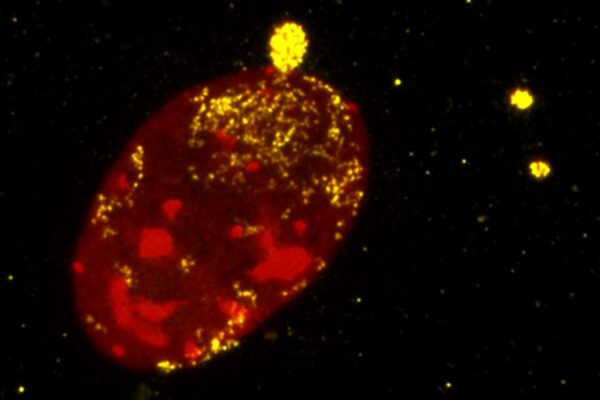
Takeda Pharmaceutical is expanding its oncology portfolio by acquiring rights to a Hutchmed colorectal cancer drug that is already approved in China and is beginning its regulatory review in the U.S.
According to terms announced Monday, Takeda agreed to pay $400 million up front for rights to fruquintinib globally, except for mainland China, Hong Kong, and Macau, where Hong Kong-based Hutchmed retains rights. Hutchmed is eligible to receive up to $730 million in milestone payments, plus royalties from sales if Takeda successfully commercializes the drug in other markets.
China’s drugs regulator approved fruquintinib in 2018. The small molecule was designed to block three vascular endothelial growth factor receptors (VEGF) that play a role in the formation of blood vessels that nourish tumors and support their growth.
Early-stage colorectal cancer can be surgically removed. If surgery does not work or a patient relapses, treatment options include some drugs, such as chemotherapy and certain biologic medications. Last week, the FDA approved Seagen’s HER 2-blocking small molecule Tukysa in combination with Herceptin as a treatment for HER 2-positive colorectal cancer that has progressed despite earlier treatment with chemotherapy.
Fruquintinib was tested in a Phase 3 clinical trial—conducted in the U.S., Europe, Japan, and Australia—that enrolled 691 patients with advanced colorectal cancer. Results showed that median overall survival, the main goal of the study, was 7.4 months for those treated with the study drug compared to 4.8 months in the placebo group. On the measure of progression-free survival, which is how long patients lived without their cancer worsening, results showed a median 3.7 months for the treatment group compared to 1.8 months in the placebo arm. These Phase 3 results were presented last September during the European Society for Medical Oncology meeting.
Last month, Hutchmed began a rolling submission for a new drug application seeking FDA approval of fruquintinib. That application is expected to be complete in the first half of this year. Regulatory submissions in Europe and Japan are also planned for later this year.

Health Benefit Consultants, Share Your Expert Insights in Our Survey
Share some of the trends you are seeing among your clients across healthcare, including chronic conditions, behavioral health, healthcare navigation, and more.
“Fruquintinib has the potential to change the treatment landscape for patients with refractory metastatic [colorectal cancer] who are in need of additional treatment options,” said Teresa Bitetti, president of the global oncology business unit at Takeda, said in a prepared statement. “ We look forward to utilizing our development and commercial capabilities to expand the potential of this innovative medicine to patients beyond China.”
Public domain image by the National Cancer Institute














